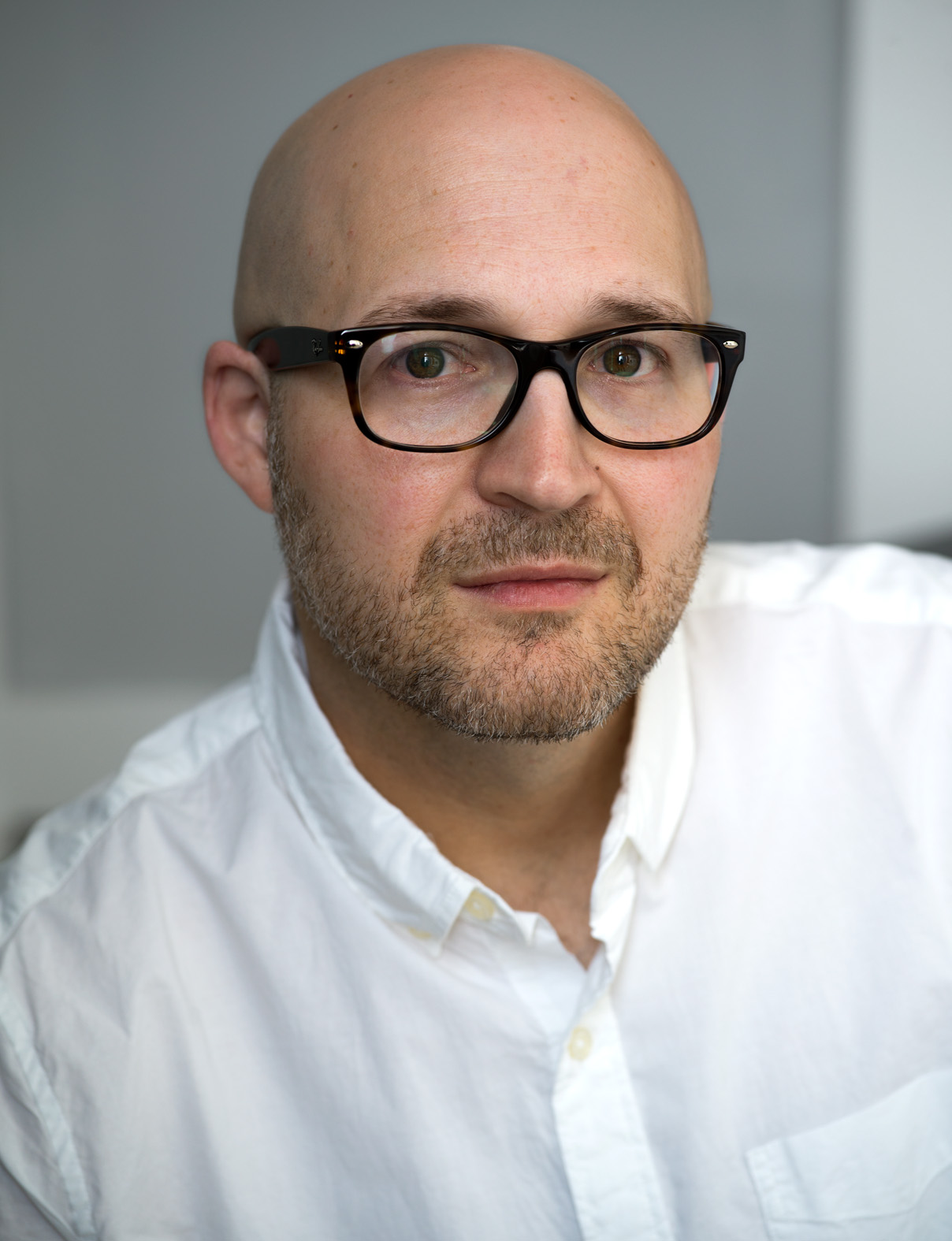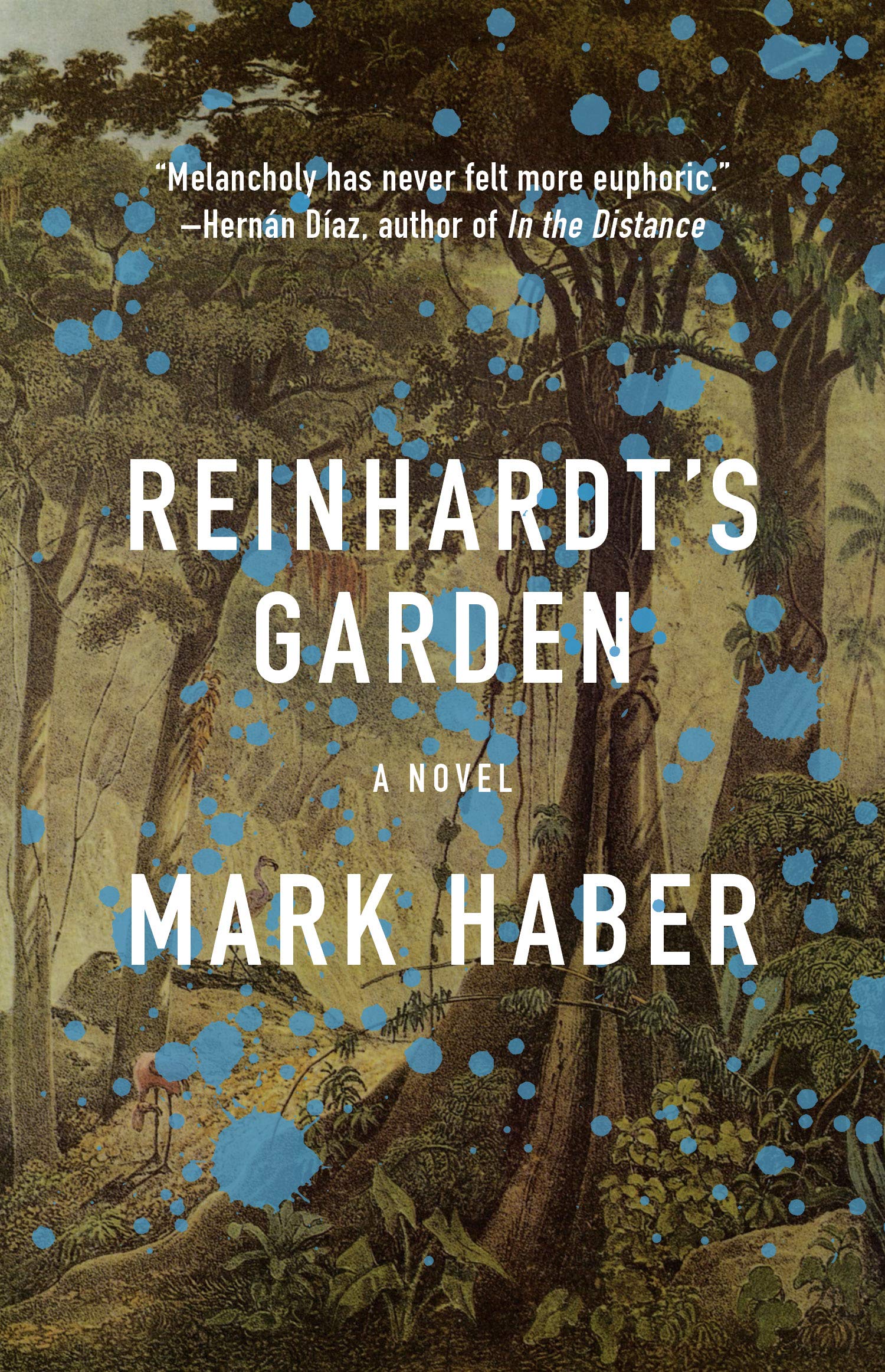Death Skulking Everywhere: An Interview with Mark Haber
Interviews
by Wilson McBee
Presented in an epic, single-paragraph scroll, Mark Haber’s debut novel, Reinhardt’s Garden, hardly reads like something from the twenty-first century. It’s set in 1907 and concerns the life and career of the Jacov Reinhardt, a Croatian-born philosopher of melancholy. To Reinhardt, melancholy is the key to understanding humanity: the subject inspires lengthy treatises on sex, architecture, and dust. The book is narrated by Jacov’s unnamed follower and amanuensis, the prospective Boswell to Reinhardt’s Johnson, in a series of vivid flashbacks. The narrator meets Reinhardt at a sanatorium in Croatia and quickly falls under his sway. After a series of misadventures in Europe, including run-ins with the real-life modernist architect Pierre Cuypers, Leo Tolstoy, and the Freud-like Otto Klein—Reinhardt’s former mentor and chief rival—Reinhardt and the narrator decamp to South America in search of the reclusive writer Emiliano Gomez Carrasquilla. It is from this moment in the narrative, lost in the jungles near the border of Uruguay and Argentina and suffering from a mysterious fever, that the narrator tells his story.
A bookseller by day, Haber wears his influences on his sleeve in Reinhardt’s Garden. One of his three epigraphs is a selection from László Krasznahorkai, and the effect of the Hungarian’s morbid humor and winding sentences are palpable everywhere in the book. The doomed South American voyage has a distinct Werner Herzog feel, and the references to fictional texts call out to Bolaño. Yet the entire package is utterly unique, owing to the abundant strangeness of the authorial voice. Although the novels have little in common subject-wise, as I read Reinhardt’s Garden, I was reminded of Ben Metcalf’s anti-pastoral Against the Country, which came out a few years ago. Both books raise the act of ranting to an art form and create their own demented grammars as they proceed.
On the eve of the publication of Reinhardt’s Garden, I exchanged questions with Haber over email, and in his responses he proved to be as lucid and reasonable as his characters are obscure and manic.
 WILSON MCBEE: The book takes place in a specific time and place—central Europe at the turn of the 20th century—and features appearances from a few real historical figures. What kind of research did you do for the novel, if any?
WILSON MCBEE: The book takes place in a specific time and place—central Europe at the turn of the 20th century—and features appearances from a few real historical figures. What kind of research did you do for the novel, if any?
MARK HABER: I did a little bit of research, but I let the story dictate what I was writing and would go back and either change places and names, or, conversely, I’d adapt the story to the places and names I had used. For instance, choosing Montevideo as the opening in South America just made historical sense because a lot of the ships that arrived from Europe would go there. I didn’t have to do too much research for Tolstoy and Yasnaya Polyana because I love nineteenth-century Russian literature and I’d already read some biographies of Tolstoy, so his estate was always looming in my imagination. I mean, he became this sort of religious figure later in life and always had these hangers-on making pilgrimages to his home. It must’ve driven his wife crazy.
WM: The character of Jacov, as described by the unnamed narrator, is the one of the most remarkable and memorable characters I’ve come across in recent fiction. His unique philosophy of melancholy and the long-winded diatribes in which it is delivered give the novel its life. How did you inhabit this character? Where did he come from?
MH: I think obsessive, even extreme characters are easier for me to create. I’m not a particularly subtle writer. I admire a lot of writers, and I’m especially envious of subtlety. However, I think characters driven by a certain idea, by a fixation, are incredibly interesting. I’ve been reading a lot of books about Alexander Von Humboldt, the naturalist, and he was extraordinary. His entire life, decades upon decades, was in pursuit of one thing—nature. I find that fascinating. Creating Jacov was very organic. I began the novel, and he was going to be this minor character, just this side character who’s always writing in his notebook about his “treatise on melancholy”; the narrator was going to be the main focus. But by the second or third day of writing, I knew this guy (meaning Jacov) was the one to watch.
WM: How important was it for you to create a coherent philosophical system for Jacov? Did you draw up an outline or make separate notes? Or did you let it come together organically as you told the story?
MH: It came together organically. I wrote the novel chronologically, how the reader reads it. I would edit as I went along, of course, but things just fell into place. In theory Jocov’s philosophies are consistent, but he’s filled with contradictions. I mean, he inverts everything his reluctant mentor has written, but also he makes his beliefs fit his own moods and whims. I wanted someone incredibly smart, but also self-obsessed, self-serving, and unafraid of hypocrisy, someone who could simply contradict himself and not think twice about it. If he’s a Buddhist, as he claims, he’s a terrible Buddhist!
WM: It seems that above all, death is the key piece to understanding Jacov’s perspective on melancholy. It’s one of the things that draws him and the narrator together. The narrator is an orphan, and Jacov lost his twin sister at a young age. How important is death to the novel’s characters?
MH: Death, or the threat of death, is a huge motivator for our characters. The narrator meets Jacov at a sanitorium because the narrator is scared he has tuberculosis; in fact, the narrator is always afraid that he’s dying. You have the constant threat of the native tribes in the forest throughout the book. Death is skulking everywhere or, if not death, the fear or reminder of death. It’s meant to be absurd of course, but also true. I think people love humor because it’s a brief escape from thinking of the inevitable. I wanted the story to be both dark and light, simultaneously. I love the books where you’re sort of laughing at the horror of it all—Céline, Krasznahorkai, Bernhard, writers like that.
WM: Reinhardt’s Garden is affected by a number of texts, both real and fictionalized, that exist outside of the novel. I’m thinking of Tolstoy’s Death of Ivan Ilych, which plays a big role in Jacov’s life, as well as the fictional writings of Emiliano Gomez Carrasquilla and Jacov’s own Origin Books. How did you conceive of these outside texts working for the reader?
MH: I love the mixture of real and fictional texts merging seamlessly. Fiction allows you to do this. It’s fun for me. And fictional texts’ existing beside real texts is the most natural thing in fiction. Fiction is invention, right? So why not invent other books and writers too? Wilcock’s The Temple of Iconoclasts and Bolaño’s Nazi Literature in the Americas were big influences. The same with Nabokov. I love the idea that Pale Fire is an entire novel written around a fictional poem. Books where the fictional text (or writer or movement) reflects the story itself—these are part of the tapestry of the book. I think these fictional texts help the reader see the world I’m making.
WM: At what point in the process of producing the novel did you realize that the narrator and Jacov would end up in South America? What was the appeal for you of having events in the book take place on two continents?
MH: It started in South America! The part that still surprises me is how much of the story takes place in Europe. I had no idea I would be flashing back to Europe so much. I mean, the majority of the novel takes place in Europe, in a flashback. I bet only ten or twenty pages of the novel are actually in South America, in real time, so to speak. But I wanted Reinhardt’s Garden to mix what we call the “old” world and the “new,” Europe and Latin America, so even when the reader is in, for example, Germany or Russia, you still have the specter of this Latin American prophet (Carasquilla) hovering over the story. I’m obsessed with Latin American literature. I have been for over fifteen years now. I’m also very influenced by European writers, from Thomas Bernhard to W. G. Sebald to Tolstoy. But I knew from the start that I wanted a novel that was dense and took place in a forest or jungle. So it wasn’t a “decision” so much as an aesthetic choice. Place plays an enormous role in my stories. Language, culture, place, etc.
WM: Jacov’s lover and companion, Sonja, plays an important role in the book. A devotee of English Romantics like William Wordsworth who finds the obsession with melancholy “dull,” she provides a philosophical counterpoint to Jacov. She’s also a victim of his whims, wounded in an accident in the unfinished second Stuttgart castle. How did you envision her role in the narrative?
MH: I wanted the book to be filled with this sort of mania, propelled by Jacov and his worshipping assistant. But I wanted the voice of reason or the voice of skepticism to be chiming in every once in a while. The only pragmatic character is Sonja, so although she’s not a large character, she’s necessary and as far as we know, the only one who survives the incidents of the novel. Sonja’s depths—her devotion to literature and her passion as a lover—are attributes that the narrator and Jacov largely ignore. That’s how it was for women back then, or worse. Ignored or tolerated, right? Sonja is the wise one, and wisdom is largely ignored. Also, her crawlspace, her hideaway to find some peace away from the madmen in her life, was a tip of the hat to Woolf’s A Room of One’s Own.
WM: After reading the ending of Reinhardt’s Garden, I was reminded of the ending of The Magic Mountain, where the idyll of the sanatorium is followed by the onset of the First World War. As I read the end of your novel, which also concludes in the years prior to that war, I was moved, and saddened, by the narrator’s optimistic conception of “a century of peace and understanding in Europe.” How did you decide to end the novel with this crushing bit of historical irony?
MH: I think the ending fits the absurdity of the novel, but it also fits the narrator’s largely naive and self-important attitude towards the future. The notion that things will work out. Imagine being a scientist or inventor, an intellectual in the early 1900s, how optimistic you might be. This will be such a splendid century! But of course it wasn’t. I think we have that same thing happening now. There’s all these amazing advances that tell us things are improving, and in a certain sense they are. But things are also very dire and getting worse. Let’s be honest—the far right is spreading: Poland, Hungary, even here. I promised myself not to talk about you-know-who, but I call my novel absurd, and then you see our president. You can’t invent that shit. It’s not even considered a strong opinion, right? I mean, he’s an objectively bad person. And when I use the word “absurd,” it’s not to exaggerate, but to sort of turn the mirror on ourselves. I think if history tells us anything, it’s: don’t be so optimistic. Pay attention. It can always get worse.
Wilson McBee is a staff writer for SwR.
More Interviews

